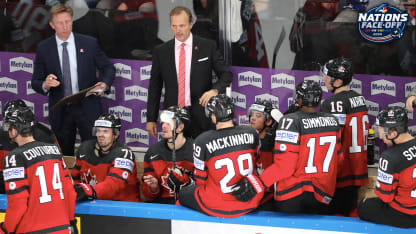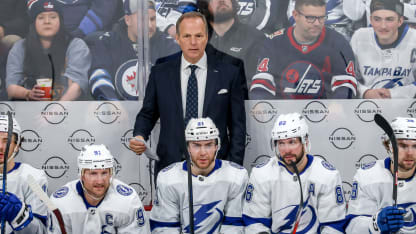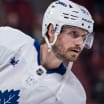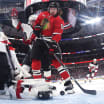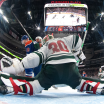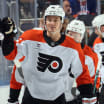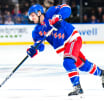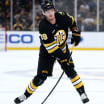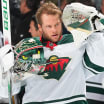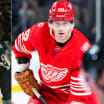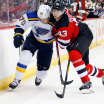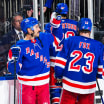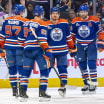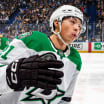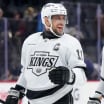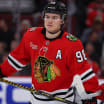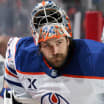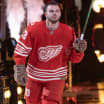How did he get to this point? And where does he go from here, both in terms of 4 Nations and Olympics, while representing Canada?
In a 1-on-1 interview with NHL.com this past week, Cooper opened up about the road that brought him here and what lies ahead.
* * *
Prince George is a community of 76,708 in the guts of the British Columbia interior. The closest NHL cities: Edmonton, 458 miles to the west, and Vancouver, 489 miles to the south.
Hockey tradition runs deep in the community, dating back to 1971 when the Prince George Spruce Kings made their debut in the Pacific Northwest Hockey League. In 1994, the Cougars of the Western Hockey League relocated from Victoria to Prince George and have been a staple ever since, featuring future NHLers over the years like Zdeno Chara, Dustin Byfuglien and Dan Hamhuis.
It was here that a young Jon Cooper developed a love of the sport at different levels, including on the international stage. One of his first memories of that type of hockey came when he watched on TV the Philadelphia Flyers face Moscow-based Red Army on Jan 11 as part of Super Series '76 between NHL and Soviet Union teams. It was a rugged game in which the Soviets left the ice after an Ed Van Impe check on Red Army’s Valeri Kharlamov was not penalized, causing Hall of Fame play-by-play man Bob Cole to declare, “They’re going home!”
“I remember thinking that they were leaving, they weren’t going to play anymore,” Cooper recalled. “And I also remember thinking, 'Wow, there’s a real rivalry between the NHL and the Russians.'"
By 1984, Cooper was attending high school and playing hockey at Notre Dame in Wilcox, Saskatchewan. The Olympics that year were held in Sarajevo, Yugoslavia, 14 years before NHLers would be allowed to compete. Canada’s national team was made up of amateurs who would go on to have respectable NHL careers, name like Russ Courtnall, Kevin Dineen and James Patrick.
“James Patrick was an alumnus of Notre Dame,” Cooper said. “So, it was a big deal to watch Canada play in the Olympics. Whenever Canada played a game, school would stop and they would wheel TVs into the classrooms. I mean, classes stopped when the puck dropped. It was a big deal.”
Three years later Cooper, like the majority of hockey fans, was in awe when the 1987 Canada Cup took place. The best-of-3 Final between Canada and the Soviet Union, considered one of the most exciting exhibitions of hockey ever seen, featured each team skating to 6-5 wins before Wayne Gretzky set up Mario Lemieux for the winning goal with 1:26 remaining in the third and deciding game to give Canada a 6-5 victory to win the tournament.
“That was the biggest memory,” he said. “That was like the best I ever saw.
“That was the moment where you got hooked.”
* * *
On April 11, 2017, the door finally opened for Cooper to get his much-coveted opportunity to coach Team Canada on the international stage.
He’d coached the Lightning since midway of the 2012-2013 season and helped Tampa Bay reach the 2015 Stanley Cup Final, where they lost the best-of-7 series 4-2 to the Chicago Blackhawks. In 2016 at the World Cup of Hockey he was an assistant for Team North America, a team made up of under-23 kids including forwards Connor McDavid, Nathan MacKinnon and defenseman Colton Parayko — three players who he’ll coach with Canada at 4 Nations.
One year later Hockey Canada offered him the job to guide the team at the 2017 IIHF World Championship in Paris, France, and Cologne, Germany. Canada would make it to the gold medal game where it suffered a crushing 2-1 loss against Sweden.
In the process, Cooper had the opportunity to coach five players who will be on Canada’s 4 Nations team: forwards MacKinnon, Brayden Point, and Mitch Marner and defensemen Parayko and Josh Morrissey.
For Cooper, being presented the chance to coach Canada at that level was a milestone moment in his coaching story.
“When you are given that opportunity, there’s a complete sense of pride in the fact that you’re going over there waving the flag, and you’re the guy getting to wave it,” he said. “And all the while, you know there’s someone out there thinking, 'Hey, we trust in you, you’re the guy we trust to do this, we want you. And here’s some of the best players in the world, and you’re the guy to lead them.'"
“You’re thinking to yourself, 'Wow, this is surreal. To me, there’s no bigger honor.'”
He would receive another such one when he was named coach of Canada for the 2022 Beijing Olympics on Aug. 9, 2021. Not long afterward the team hierarchy held meetings in Banff, Alberta to discuss what the roster might look like.
“With guys like Nathan MacKinnon, Connor McDavid and Sidney Crosby available, 'Coop' was like a kid in a candy store fiddling around with potential line combinations,” Ken Holland, an assistant GM with Canada at the time, said.
Not long afterward, reality spoiled their plans. Because of concerns about the ongoing coronavirus pandemic, the decision was made that NHLers would not participate in the Games.
Cooper and his staff were understandably gutted. Which makes the opportunity to coach Canada again for the 4 Nations and 2026 Olympics that much sweeter.
“I think there’s a reason why players play and coaches coach,” Cooper said. “The reason we’re in this crazy sport and in this environment is because there’s something inside that drives you. And there’s a competitiveness, a drive inside me, a fire that’s lit that wants nothing more than to do this and be successful at it. And when that fire gets snuffed out, like it was when we were told we couldn’t go in 2022, there was mass disappointment with that.”
Now comes a second chance, one he’s grateful for.
“In the end, that pilot light got lit again because we’re allowed to go now,” he said. “And that just adds to the excitement of what we’re doing.”
* * *
Like most Canadians, Cooper remembers where he was when Sidney Crosby scored the famed “Golden Goal” in overtime that gave the hosts a 3-2 win against the United States in the gold medal game at the Vancouver Olympics on Feb. 28, 2010.
Welcome to Green Bay.
Cooper was the coach of the Green Bay Gamblers of the United States Hockey League at the time. While Crosby was producing one of the most iconic moments in Canadian sports history, he was behind the bench for a 5-3 victory against visiting Youngstown.
All the while, he was trying to monitor what was going on in Vancouver.
“Every time between periods, we’d race in and ask, 'Oh my God, what’s the score?,'” Cooper recalled. “And I remember the U.S. tied the game late. And now it’s going to overtime. And I’m (angry). I’m like, 'We’re going to miss (bleeping) overtime because we have to go coach the third period of this game.'"
“I remember telling our first line to go on, and they’re telling me that line is already out there. I’m not even paying attention to our game. We’re trying to watch Canada on the big TV in the arena. And then, at one point, I’m actually coaching our game when my assistant coach nudges me and says, 'Look.' And I look over to the Canada game and see the Canadians rushing the ice.
“So yeah, I certainly remember where I was.”
Fifteen years later, Cooper now gets the chance to coach the Canadian hero known as Crosby. And while he won’t reveal who Canada’s captain will be this time around, his respect for the Pittsburgh Penguins captain knows no boundaries.
Cooper pointed to a game on Jan. 12 between the Lightning and Penguins when Tampa Bay scored three goals in the final 3:03 to break a 2-2 tie for a 5-2 victory at PPG Paints Arena.
Afterward, Crosby came out to meet Cooper for a quick chat.
And a request.
“He asked me if Anthony Cirelli, Brayden Point and Brandon Hagel could briefly come out and talk 4 Nations,” Cooper said. “When I told them 'Sid' wanted to talk to them, they were like, 'Really? Sidney Crosby wants to talk to us?' They were amazed.
“Here’s a guy who was frustrated at losing such a close game so late, and he still took the time to talk 4 Nations to these guys. I can’t say enough about what that meant. They came out, and the four of them sat for 15 minutes like kids in a candy store talking 4 Nations. It was awesome. And I’m like, 'There you go. There’s a leader.'"
“I’ll say this, 'We’re all glad he’s on our side.'”
* * *
As the days count down toward the beginning of 4 Nations, Cooper knows all the details that will be discussed.
What are the lines? Who starts in goal? What are the power play units?
These are the types of questions an entire country wants answers to. As such, he knows it’s his job to stay grounded amid all the hype, the excitement and the pressure.
At the same time, he wants to make Canada’s mandate clear regarding the 4 Nations.
This is not an audition for the Olympics. This is not just an exhibition to showcase some of the game’s top players.
“Our goal is to win this tournament. Period,” he said. “I don’t want people coming in here saying the 4 Nations, not every country is in it, so with the Olympics a year away we’ll just take a look at these young players and see if they’re ready to progress or which veterans might not be on the team next year.
“I don’t want that attitude. That’s not who we are. I don't ever want to go into anything and say, 'This is just a step for another competition.'"
“I didn’t sign up for that.”
